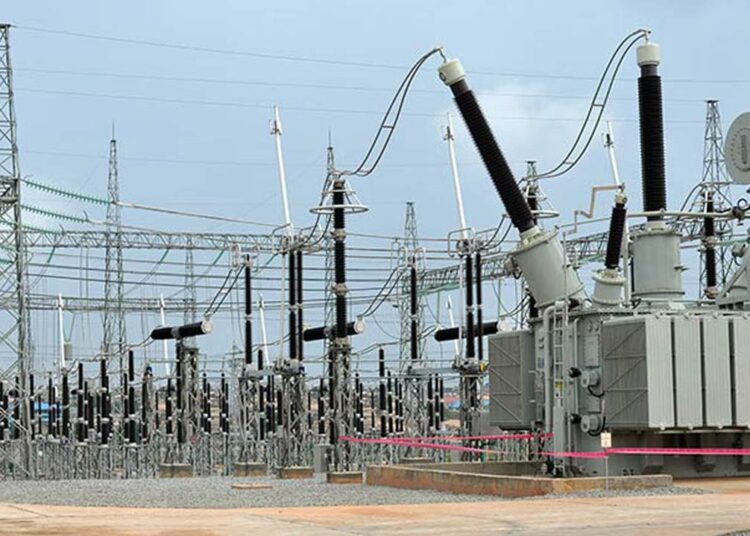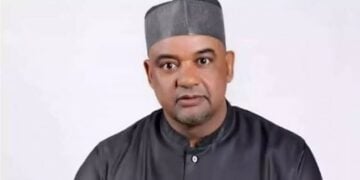The Nigeria electricity sector has grappled with a delusive perception of a brighter power industry following the 2013 privatisation exercise.
The sector is currently grappling with an inherited debt crisis of over N3 trillion.
Although the federal government is working to address the issue by settling existing sectoral debt obligations and improving liquidity in the power value chain\, it is viewed that a national discourse is needed to determine the perspective on electricity supply as a commercial product or social service.
At the start of the year, industry watchers expected that the federal government would consider it expedient to commence a review of the operational licences issued to Generation Companies (GenCos) and Distribution Companies (DisCos) 10 years ago, and there was enough anticipation that those who bought the power assets will not retain their licences.
LEADERSHIP Weekend reports that the licences granted to operators and players in the power sector under the privatisation exercise was designed to last for 10 years, implying it has 10-year moratorium from November 1, 2013 to October 31, 2023
There was a disturbing scenario and agitation as to whether the federal government would review the operational licences of GenCos and DisCos using the Key Performance Indicators (KPIs) and the Service Level Agreement (SLA) as well as the Vesting Contracts.
They appear to be right as, at the last performance review, under President Muhammadu Buhari administration specifically in December 2022, it was learnt that only three of the eleven privatised DisCos in 2013 were operating profitably while the remainder had operated at a loss since the privatisation exercise.
The three profitable DisCos are Eko Electricity Distribution Company, Ikeja Electricity Distribution Company and Enugu Electricity Distribution Company.
The banks were mandated to find serious investors to sell their 60 per cent equity in the Abuja, Kano, Kaduna, Benin, Ibadan and Port Harcourt DisCos.
The previous core investors were sacked to make the firms more responsible, with the government determined to put the DisCos on their feet.
The restructuring of the six DisCos included the sacking of the previous core investors due to poor performance and the composition of a new board and management to run them.
Banks holding majority stakes in six electricity distribution companies (DisCos) were asked to divest within 12 months.
The restructuring means that government had sacked the core investors and the management and allowed the lenders to take over.
Either banks or the Asset Management Corporation of Nigeria (AMCON) hold the franchise and the banks then took over 60 per cent ownership.
Government also allowed the banks, the Bureau of Public Enterprises (BPE) and the Central Bank of Nigeria (CBN) to take control.
The lenders provided the chairmanship of the DisCos, while the Bureau of Public Enterprises (BPE) provided part of the management, including the managing directors, while the CBN provided the chief financial officer (CFO) and the auditor.
So this was the position with the six DisCos: Abuja, Kano, Kaduna, Benin, Ibadan and Port Harcourt.
Jos DisCo was re-concessioned in 2022 and Yola was re-concessioned in 2021.
However, despite the notable shortcomings, some key stakeholders have called for caution, saying the entire privatisation initiative was not properly structured to support private sector investment.
Those who spoke to our correspondent critically examined how the Nigerian government fared in its original 60 per cent equity stake-holding in the privatised power sector ecosystem and what the privatisation of the electricity sector value chain contributed significantly to improving the general wellbeing of the nation’s electricity sector value chain/economy.
Former power minister, Prof. Barth Nnaji, blamed certain regulatory hiccups and inadequate policy direction to whatever imbalances the sector has witnessed.
Nnaji said the Nigerian Electricity Regulatory Commission (NERC) had cautiously failed to implement a cost-reflective tariff regime which had negatively and significantly affected DisCos’ return on investment.
He said the decision by NERC to discharge that responsibility could be political given that the metering gap on the one hand, and appropriate billing on the other, will choke citizens who are already grumbling over escalating costs of living after petrol subsidy removal.
He further asserted that the erosion of the currency in Nigeria heavily deterred DisCos from investing in infrastructure and also adequately providing technical support services to decaying assets.
“We should understand that most parts used in servicing critical assets are imported and with foreign exchange fluctuating and rising as well as being in short supply, it limits the ability of DisCos to procure necessary equipment to support service delivery,” he said.
This equally exacerbates the DisCos’ aggregated technical, commercial and collection (ATC&C) losses, he noted.
Nnaji said that improved ATC&C loss reduction would be achieved if DisCos adopt a combination of other strategies that would ensure reduction in technical and commercial losses, in addition to aggressive deployment of meter assets.
He, however, stressed that metering, on its part, is capital intensive which a proper and well-structured policy can help to accelerate.
The former minister of power further explained that, in practice, factors causing technical and commercial losses are never constant as system components depreciate/burn out with time, energy theft and pilferage, and meter tamper/bypass are on the increase daily while meter deployment is not aggressive enough to match utility customers’ growth.
Nnaji called for the adoption of combined modern strategies, in addition to aggressive metering in tandem with customers’ growth as a deliberate attempt to reduce ATC&C losses.
The distribution system, which is visibly the last mile in the electricity supply chain that is close to the load centres, he noted, is a critical infrastructure in the delivery of electricity to connected customers of the national power grid.
He highlighted the distribution companies’ challenges in the delivery of quality and reliable supply.
The electricity roadmap techno-commercial proposal, he said, identified ATC&C losses, distribution network optimisation, system expansion, reinforcement, and adequate capital investments as the underlying root causes of the seeming underperformance of DisCos.
On the other hand, Nnaji said the Transmission Company of Nigeria (TCN), which federal government holds 100 per cent equity over the period in review, failed to upgrade its facilities to satisfaction, hindering the wheeling of generated power.
According to Nnaji, a combination of several factors, including the inability of GenCos to recover generation from non-functional units, contributed largely to low output.
Also speaking to our correspondent, the convener, PowerupNig, Adetayo Adegbemle, said the 10 years following the power sector privatisation had been a decade of learning, changing of mindsets, experimentation, and more learning.
According to Adegbemle, the power sector has also evolved with the full complement of players and stakehold rs, policy failures, regulatory inefficiencies and appointments that did not deliver on their mandate.
“It has also seen an unprecedented investment in the power sector, from generating to transmission and distribution. However, we are not yet at that point where the desired results are yielded,” he added.
Meanwhile, a seeming marginal performance improvement was recorded in the power sector as DisCos reported an increase both in metering and revenue collection as of the end of Q2, 2023.
According to a report seen by our correspondent, issued by the Nigerian Electricity Regulatory Commission (NERC) and prepared in compliance with Section 56(3) of the Electricity Act 2023, a total of 178,864 meters were installed in 2023/Q2, representing an increase of 3,583 installations (+2.04 per cent) compared to the 175,281 meters installed in 2023/Q1.
During the period, the total revenue collected by all DisCos was N267.86 billion out of N354.61 billion billed customers.
According to the NERC, the new installations resulted in a 0.85 per cent increase in net end-user metering rate in the Nigerian Electricity Supply Industry (NESI) between 2023/Q1 (43.31 per cent) and 2023/Q2 (44.16 per cent).
During the quarter, 168,397 meters were installed under the Meter Asset Provider (MAP) framework while 9,302 meters were installed under the National Mass Metering Programme (NMMP) framework.
The Vendor and DisCo Financed framework recorded 1,143 and 22 meter installations respectively.
Following the perceived challenges in meter deployment, the Commission urged the DisCos to utilise any of the five meter financing frameworks provided in the 2021 Meter Asset Provider and National Mass Metering Regulations to close their respective metering gaps.
As a safeguard for customers against exploitation due to the lack of meters, the commission said it had continued to issue monthly energy caps for all feeders in each DisCo. This sets the maximum amount of energy that may be billed to an unmetered customer for the respective month based on gross energy received by the DisCo and consumption by metered customers.
To sustain operational activities of the DisCos, the NERC in January gave approval to requests from the 11 companies, including the Transmission Company of Nigeria, TCN.
The NERC, considering huge debt profile in the sector, provided adequate guide to Capital and Operational (CAPEX and OPEX) of individual DisCos that applied for tariff adjustment.
A circular signed by the Commission’s chairman, Sanusi Garba, and seen by our Correspondent showed that the Commission gave the regulator approved tariff adjustment demand under the Multi Year Tariff Order (MYTO) 2024 with effect from January 1.
The consideration is to enable the utility firms ensure prices are fairly charged to customers and also allow them recover cost of operations, including a reasonable return on capital invested.
For instance, the Jos Electricity Distribution Company, JED, has allowable recovery of N80.352 million in 2024 as against N70.688 million in 2023.
For Yola Electricity Distribution Company, YEDC, NERC approved allowable recovery of N28. 736 million for 2024 as against N24.987 million in 2023.
Kaduna Electricity Distribution Company, KADEDC, was given approval to deploy 65,000 meters in 2024 valued at N6.25 billion, while allowable revenue for the year is N219,240 million and allowable recovery of N97,358 million.
Similarly, Port Harcourt Electricity Distribution Company has allowed recovery of N114,132 million and approved meter roll-out of 65,000 valued at N625 billion.
To achieve effective implementation of Performance Improvement Plan (PIP) by the TCN, the regulator had approved the sum of N98.24 billion for CAPEX, translating to 46.7 per cent, and N111.90 billion for OPEX, representing 53.3 per cent.
The Commission approved N210.14 billion as 2024 revenue requirement.
Meanwhile, the Abuja Electricity Distribution Company, AEDC, had approved CAPEX of N17.983 million with OPEX of N51,509 million. Its meter roll-out approval was N6.25 billion for 65,000 meters within the same period.
In the same vein, Ikeja Electric, IE, made a demand of N163, 388 million as CAPEX but got approval for N18.885 million, while required revenue was put at N481.006 million.
For tariffs in summary, going by what NERC approved, the federal government subsidises electricity tariffs on average of 50 per cent of cost-effective tariffs across all the DisCos in the country.
Meanwhile, concerned industry and consumer groups as well as economic experts have urged President Bola Tinubu, to prioritise and urgently review the privatisation of Nigeria’s power sector.
Since the successor electricity generation and distribution companies of the defunct Power Holding Company of Nigeria (PHCN) were unbundled and handed over to private investors in November 2013, the sector has been struggling to meet the demands of consumers nationwide.
Power generation and supply has continued to hover between 3,500 megawatts and 5,000MW since the sector was privatised about 10 years ago, which is grossly inadequate for Nigeria’s over 200 million citizens.
Describing the performance of the sector as abysmal, power consumer groups said the government must give priority to electricity generation and supply in order to revamp the Nigerian economy.
“So our advice to government is to review, as a matter of urgency, the entire gamut of the power sector privatisation exercise,” the president, Nigeria Consumer Protection Network, Kunle Olubiyo, who served in the National Technical Investigative Panel on Power System Collapses/System Stability and Reliability (June 2013), said.
The NCPN president said the economy would not make headway if government failed to tackle the crisis and corruption that produced the privatised power sector.
He said the DisCos could be broken into smaller units to “create a situation where competition and not monopoly will drive the electricity sector in the downstream, and not what we have at the moment where consumers do not have options.”
In the upstream arm of the sector, Olubiyo said Nigeria has abundant gas, adding that the NCPN was satisfied with what Dangote and BOA refineries and petrochemical industries were about to bring on board.
According to him, government should encourage more licenses in order to have many investors invest in developing the country’s vast crude oil and gas resources.
“As a nation with abundant energy resources, there is a need for energy sufficiency, as this will help ginger industries to create jobs. So the major concern of the current administration should be how to address the issue of energy security as there would be no meaningful economic progress without power.
“There is no way the economy can improve without power. It is not possible. Every time you are using generators, what are you going to produce? What will be the cost of your output? The government must, therefore, give priority to power,” he stated.
On his part, the national secretary, Network of Electricity Consumers Advocacy of Nigeria, Uket Obonga, said NECAN had repeatedly stated that the privatisation of the sector should be reviewed, as he urged the Tinubu-led administration to consider this.
Shouldering Industry Subsidy
One of the problems facing the sector is the absence of cost reflective tariff.
The Nigerian Electricity Regulatory Commission on Wednesday released the 2024 electricity tariffs which showed that the federal government is to shoulder about N1.6 trilion subsidy this year to avert electricity tariff hike.
In the tariff review applications of the 11 power distribution companies in Nigeria, the NERC revealed what it approved as their different cost-reflective tariffs and what was allowed as tariffs by the commission following the federal government’s subsidy.
The NERC disclosed this in the regulatory instruments on the Multi Year Tariff Order 2024 for the different power distribution companies.
It said the order shall take effect from January 1, 2024, and shall cease to be effective on the issuance of a new tariff review order by NERC for each particular DisCo.
The reports indicated that the tariffs should naturally rise considering various economic fundamentals and industry parameters such as the rise in foreign exchange, cost of gas and inflation, among others.
But an analysis of the MYTO 2024 documents for various DisCos indicated that NERC retained the electricity tariffs for 2023, based on the subsidy being paid by the government this year.
Taking Ikeja, Benin and Abuja DisCos for instance, while the cost-reflective tariffs approved by NERC for the DisCos for 2024 were N112.10/Kilowatt-hour, N126/kWh and N120.88/kWh respectively, what the regulator approved for the power firms were N56.6/kWh, N60.1/kWh and N63.24/kWh respectively.
It was observed that NERC retained the tariffs charged by the DisCos in 2023, as the federal government would pay their respective outstanding balance through subsidy this year.
Further analysis of the reports showed that the subsidy for only the month of January 2024, which the government would incur for consumers under Ikeja DisCo was N19.85bn; for Benin DisCo, N11.74bn, and for Abuja DisCo, N19.44bn.
The cumulative subsidy for the entire year is what the power sector regulator puts at N1.6trn; however, what the DisCos submitted to the NERC as their own calculated cost-reflective tariffs were far higher than the cost-reflective tariffs approved for them by the regulator.
Despite approving lower cost-reflective tariffs for the power firms, the allowed tariffs were further reduced, as the balance would be sorted by the N1.6trn subsidy to be paid by the federal government.
The federal government had been paying subsidies on electricity before now, but it had not been this much.
According to a report, the federal government spent N375.8bn on electricity subsidy between January and September 2023, as power consumers paid a total of N782.6bn for the commodity during the same period.
The report further indicated that in the first quarter of 2023, the Federal Government subsidised power by N36bn, this increased to N135.2bn in the second quarter, and jumped to N204.6bn in the third quarter. Figures for the fourth quarter are not released yet.
The NERC, however, noted that the N1.6trn subsidy for 2024 was too high and stressed that it was not sustainable.
It also revealed that four states had developed their electricity law, while four others were in the process of completing theirs.
NERC chairman Sanusi Garba said, “On the MYTO, I want to correct the wrong impression that for one year we haven’t had any reviews.
“The reality is that the reviews are being done, but what has happened is that what you pay as a customer is a blend of regulation and policy. So if we determine that you should be paying N150 and the federal government says ‘no you should pay N60, I will pay the difference,’ then that’s what it is. The government will now provide the money.
“So that is why in the current tariff order, you will see that this is what you should pay, while this is what the government says you should pay, because the government will provide the difference, until there is a change of policy.”
Also commenting on the development, the vice chairman of NERC, Musiliu Oseni, declared that the N1.6 trillion electricity subsidy was unsustainable, stressing that subsidy was more beneficial to the rich.
He said, “In this order, we provided what the tariffs are supposed to be, and what is being charged based on the subsidy policy of the government. And in each order, you will see the amount of subsidy per DisCo.
“And in total, this year we are heading to about N1.6trn subsidy, which most likely everybody here will feel is not sustainable. If nothing is done to electricity tariffs, that is what the subsidy will likely be. Now, how much is the total budget of this country?
“You can do the math and find out the percentage that, that will represent, and whether we should continue to do that. Meanwhile, evidence has shown that it is the rich that benefit more from the so-called subsidy.”
Reacting to what his vice chairman said, Garba stated that “hopefully, going forward, we will focus more on the vulnerable customers in terms of the benefit of subsidy, then those who can truly afford the true cost of electricity will pay for it.”
On states that have enacted their own electricity laws, the commissioner, Legal, Licencing and Compliance, NERC, Dafe Akpeneye, said four states now have their own electricity laws, while four others were making finishing touches on theirs.
Outlining states that have developed their power laws, he said, “Basically it is Ondo, Ekiti, Enugu and Anambra. Lagos, Osun, Edo and Kano are work in progress.”
In June 2023, President Bola Tinubu assented to the electricity bill which empowers states, companies and individuals to generate, transmit, and distribute electricity.
The new electricity law repeals the Electricity and Power Sector Reform Act of 2005 and consolidates the laws relating to the Nigerian Electricity Supply Industry (NESI).
LEADERSHIP Weekend recalls that the Senate had passed the electricity bill in July 2022 to solve the sector’s challenges.
Debt Impeding Service Delivery
Meanwhile, power generation companies have blamed low power generation for the inability of the utility firms, also known as the DisCos, to clear about N2 trillion debt owed them.
The executive secretary, Association of Power Generation Companies, Dr Joy Ogaji, argued that the GenCos were not owed N500bn as being reported, but N2trn.
“GenCos are not owed N500bn as accepted by Nigerian Bulk Electricity Trading Plc (NBET). We are owed N2 trillion, while we owe suppliers N1trn,” she said.
She further explained that the GenCos had not been able to make power available due to the huge debts being owed them by NBET.
NBET is the manager and administrator of the electricity pool in the Nigerian Electricity Supply Industry (NESI) and collects tariffs on behalf of the market – DisCos, DisCos and the TCN.
Ogaji further explained that although the GenCos currently had enough power generating capacity, the market was not available as the DisCos had not been able to take all the power generated.
To ensure proper management of the government’s stake in the sector, the Ministry of Finance Incorporated (MOFI) has taken the responsibility of its rights for the management of the federal government’s 40 per cent shareholding in the 11 electricity distribution companies (DisCos) and the various equity stakes in related energy sector companies as an essential element of consolidation.
The MOFi, which is the holder and manager of federal government’s investments, said the takeover of the stakes would drive operating efficiency, best corporate governance practices and ultimately maximise the value derived from the electricity assets, in alignment with President Bola Tinubu’s economic growth agenda.
The minister of finance and coordinating of the economy, Wale Edun, in a letter dated January 10, 2024, directed the board of directors of MOFI to immediately revoke the Power of Attorney (PoA) which the Bureau of Public Enterprises (BPE) exercised on its behalf in the over one decade in the electricity successor companies.
The minister also directed MOFI to immediately assume ownership, control and management of all equity holding of the Federal Government of Nigeria in the successor companies of PHCN, assume ownership, control and management of all equity holding of the Federal Government of Nigeria as contemplated and provided for by law and/or any contract; and issue all appropriate notices, instruments, documents which are required to give effect to this directive.
In its latest statement, MOFI, which has already executed the ministerial directive, said it had in 2012 issued a Power of Attorney to the Bureau of Public Enterprises (BPE) whereby BPE was empowered to carry out the actions necessary to fulfil the National Council on Privatisation (NCP’s) directives and complete the various electricity privatisation (share sale) transactions.
The BPE, it added, had since then held shares in the DisCos on behalf of MOFI, adding that this continued for over 10 years after the sales were completed in 2013, until the recent order by the minister of finance.
While extending its gratitude to the BPE for its stewardship of the shares, the company noted that as a reformed and active entity, MOFI was taking significant steps to ensure that these assets deliver full value to the country.
“We look forward to collaborating with our key stakeholders and, through our concerted efforts, making a tangible impact in contributing to a thriving, resilient and growing Nigeria,” the statement added.
According to MOFI, in the past 24 months, and particularly since the amendment of the MOFI Act by the Finance Act, 2023, it has been reformed and restructured from a unit in the Office of the Accountant-General to a full-fledged public sector (FGN) asset management corporation.
“This arose from the recognition that FGN assets across practically all economic sectors nominally valued at very significant sums were largely moribund or grossly underutilised and poorly managed.
“Consequently, it was determined in 2021 by the then minister of finance, amongst other relevant decisions, that MOFI would adopt a new, value-driven strategic direction in aggregating and managing FGN assets,” the statement explained.





